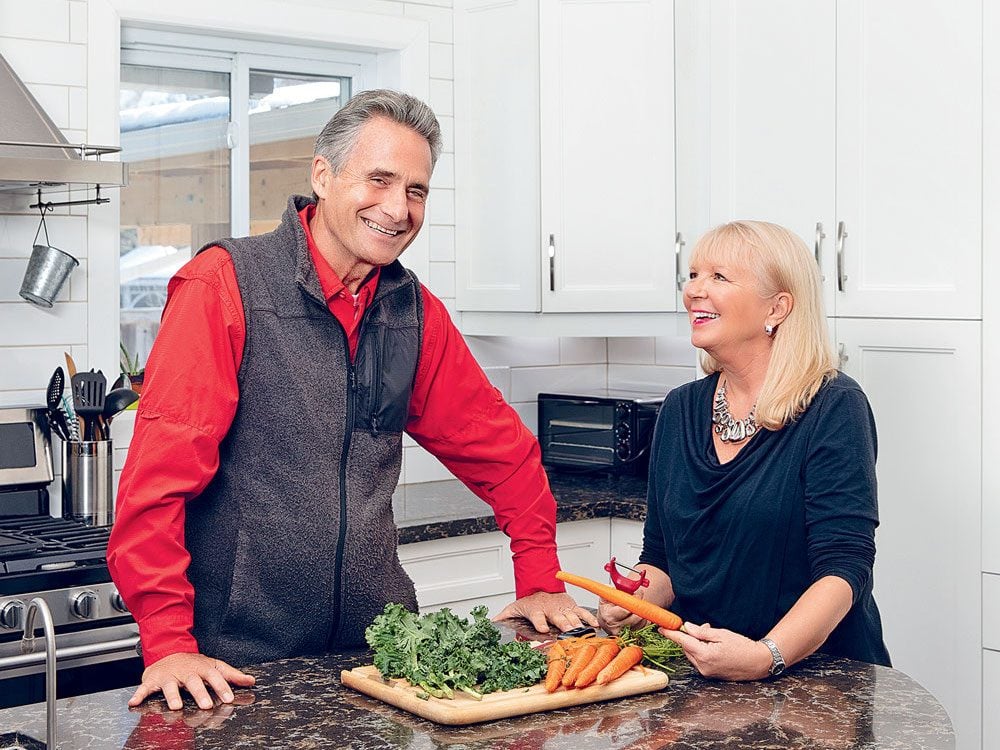How This Farming Project in Africa is Helping Communities Grow Their Own Food
Dale and Linda Bolton founded Thrive for Good to help fight hunger in Kenya and beyond.

Planting the seed
Dale Bolton was driving to his home in suburban Toronto when he heard the statistic that changed his life. It was 2004 and the gregarious pastor was listening to a lecture about a crisis that was sweeping Africa.
According to the speaker, there were over 34 million orphans on the continent. “I almost ran into a tree,” says Bolton. The number was staggering—the sheer volume of human suffering unimaginable. He couldn’t stop thinking about it.
At the time, Bolton wasn’t looking for a new project. He and his wife, Linda, had spent the previous 20 years founding three different churches in Ontario. “I was 51. My dad retired at 53,” says Bolton. He was building a sailboat in their garage, dreaming about the Caribbean. “But this thing would not leave me alone.”
That unignorable statistic started the Boltons on a journey that eventually led them to create Organics 4 Orphans (rebranded last year as Thrive for Good), a not-for-profit that gives communities the resources and knowledge to sustainably grow their own crops.
But that mental leap—from orphans to gardens—didn’t happen immediately. First, the couple raised money for traditional charities, funding orphanages and digging wells. In 2005, they visited those projects in Kenya. Dale had grown up on a farm near Chatham, Ont., and walking through Kenyan villages he was amazed to see that people weren’t growing their own healthy food. The kids were surviving on a diet of ugali, a kind of cornmeal.
As Bolton spent more time there, digging into sub-Saharan history, he came to believe that the problem was the way commercial agriculture, with its dependence on fertilizers and pesticides, had been introduced. Agricultural yields on the continent were significantly lower than in other parts of the world, in large part because small-scale farmers simply couldn’t afford the rising costs of the fertilizer.
The number of orphans, the lack of gardens, the dependence on mass agriculture—for Bolton, it all suddenly seemed inextricably connected. The communities in these villages had the desire and capacity to care for their children, but malnutrition was hampering parents and caregivers.
Dale and Linda decided to start small: by funding and training people to grow modest organic gardens. To that end, Dale enrolled in an organic farming course in Kenya. There, he met Ambrose Mootian, a 25-year-old from a Maasai tribe west of Nairobi.
Like Bolton, Mootian was a farmer’s son. And like Bolton, he’d come to believe in the power of small-scale, organic farming. Together they travelled to Maasai land near the Tanzanian border to help the community start what they came to call a “life garden.” Locals were skeptical, Mootian remembers. “But once they started tasting the food, they were like ‘Wow.’”
After that first project, things moved quickly. “When we helped one village, three more villages asked for help,” says Bolton. The organization went wherever they were wanted—in Kenya and then beyond.
Today, Thrive for Good has 80 employees and interns, and it has helped more than 1,000 communities create healthy meals for almost 30,000 people. Since 2012, they’ve run a training school in Kitale, where Mootian is the CEO. “I’m still planting seeds,” he says, describing how trainees from Kenya—as well as 19 other countries in Africa and beyond—head back home with a newfound knowledge to feed their communities.
As for the Boltons, a few years ago they sold the sailboat. The Caribbean will wait.
These other acts of kindness will make you proud to be Canadian!



